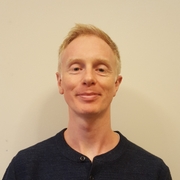- Level Foundation
- المدة 28 ساعات hours
- الطبع بواسطة University of London
-
Offered by

عن
This course provides insight into the phenomenon of internal displacement, a major humanitarian and development challenge in today’s world. Taking a global perspective, you will learn about who internally displaced persons (IDPs) are and where they come from, as well as delving into the fundamentals of the global protection response for IDPs and potential ‘solutions’ for those who have been internally displaced. The course places you at the centre of the learning experience through engagement with a range of robust and challenging activities, materials and online peer engagement. This course has been developed by a specialised consortium of research networks and institutions working on IDP protection and research: • Global Engagement Network on Internal Displacement in Africa • Latin American Network on Internal Displacement • Middle East Network for Research on Internal Displacement • Internal Displacement Research Programme and Birkbeck at the University of London. Learners who have completed this course may seek to continue studying on our online Master’s programme in Refugee Protection and Forced Migration Studies. In 2019, this MA was awarded the prestigious Roger Mills Prize for its innovative approach to online learning. That programme builds upon the MOOC experience, delivering a fully accredited Master’s degree in an online learning environment. The development of this course was supported by the Arts and Humanities Research Council (AHRC), on behalf of the UKRI Global Challenge Research Fund (GCRF) as part of the funded project “Interdisciplinary Network on Internal Displacement, Conflict and Protection” (AH/T005351/1), working in collaboration with network leaders Dr Beatriz Sanchez Mojica, Dr Hana Asfour and Dr Romola Adeola. Key learning objectives: • Explain the main trends in internal displacement, and why IDPs merit special assistance • Assess ‘protection’ and ‘solutions’ for IDPs, including the links to development • Evaluate the experience of internal displacement, drawing on research and creative sourcesالوحدات
Course introduction
2
Discussions
- Where in the world are you based?
- Introduce yourself and tell us what has motivated you to take this course
1
Videos
- Introductory video
3
Readings
- Video transcript
- Key information about course assignments and graded assessments
- Recommended background reading
Internal displacement: scale, causes and effects
1
Assignment
- (Graded) Week 1 assessment quiz
2
Discussions
- Week 1 Forum
- What are the main characteristics of IDP flows in one country or region of the world?
1
Videos
- Week 1 video
2
Readings
- Video transcript
- Reading: Essential reading for Week 1
The emergence of IDP law, policy and institutions
1
Assignment
- (Graded): Week 2 assessment quiz
2
Discussions
- Week 2 Forum
- What makes IDPs distinctive?
1
Videos
- Week 2 Video
2
Readings
- Video transcript
- Essential reading for week 2
IDP protection in practice
1
Peer Review
- (Graded) Peer review assessment
2
Discussions
- Week 3 Forum
- What are the main challenges for IDP protection in conflict contexts?
1
Videos
- Week 3 video
2
Readings
- Video transcript
- Essential reading for week 3
Displacement solutions and development
1
Peer Review
- (Graded) Peer review assessment
2
Discussions
- Week 4 Forum
- Is return the best durable solution for IDPs?
1
Videos
- Week 4 video
2
Readings
- Video transcript
- Essential reading for week 4
IDPs in social context
1
Peer Review
- (Graded) Peer review assessment
3
Discussions
- Week 5 Forum
- Does internal displacement have different effects on men, women and children?
- Does internal displacement contribute to processes of social change?
1
Videos
- Week 5 video
2
Readings
- Video transcript
- Essential reading for week 5
Internal displacement as lived experience
1
Peer Review
- (Graded) Peer review assessment
2
Discussions
- Week 6 Forum
- What does home mean to you?
1
Videos
- Week 6 video
2
Readings
- Video transcript
- Essential reading for week 6
Auto Summary
"Internal Displacement, Conflict and Protection" is a comprehensive exploration into the complex issue of internal displacement, a significant humanitarian and development challenge globally. This course, situated in the domain of Personal Development, is crafted to provide learners with a deep understanding of internally displaced persons (IDPs), their origins, and the global protection responses available to them. Developed by a consortium of renowned research networks and institutions, including the Global Engagement Network on Internal Displacement in Africa, the Latin American Network on Internal Displacement, and the Middle East Network for Research on Internal Displacement, this course is backed by the expertise of the Internal Displacement Research Programme and Birkbeck at the University of London. The course is supported by the Arts and Humanities Research Council and is part of the UKRI Global Challenge Research Fund project. Guided by experienced network leaders Dr. Beatriz Sanchez Mojica, Dr. Hana Asfour, and Dr. Romola Adeola, learners will engage with a variety of challenging activities and materials, fostering a rich learning environment enhanced by online peer engagement. The curriculum is designed to help students explain the main trends in internal displacement, assess protection and solutions for IDPs, and evaluate the experiences of displacement through research and creative sources. Spanning a duration of 1680 minutes, the course is available on Coursera with both Starter and Professional subscription options. It is targeted at foundation-level learners who are keen to delve into humanitarian issues and potentially continue their studies with a Master’s programme in Refugee Protection and Forced Migration Studies, which has been recognized for its innovative online learning approach. This course is ideal for individuals seeking to broaden their knowledge on internal displacement and contribute meaningfully to the field of humanitarian aid and development.

Professor David Cantor

Dr Agnes Woolley


